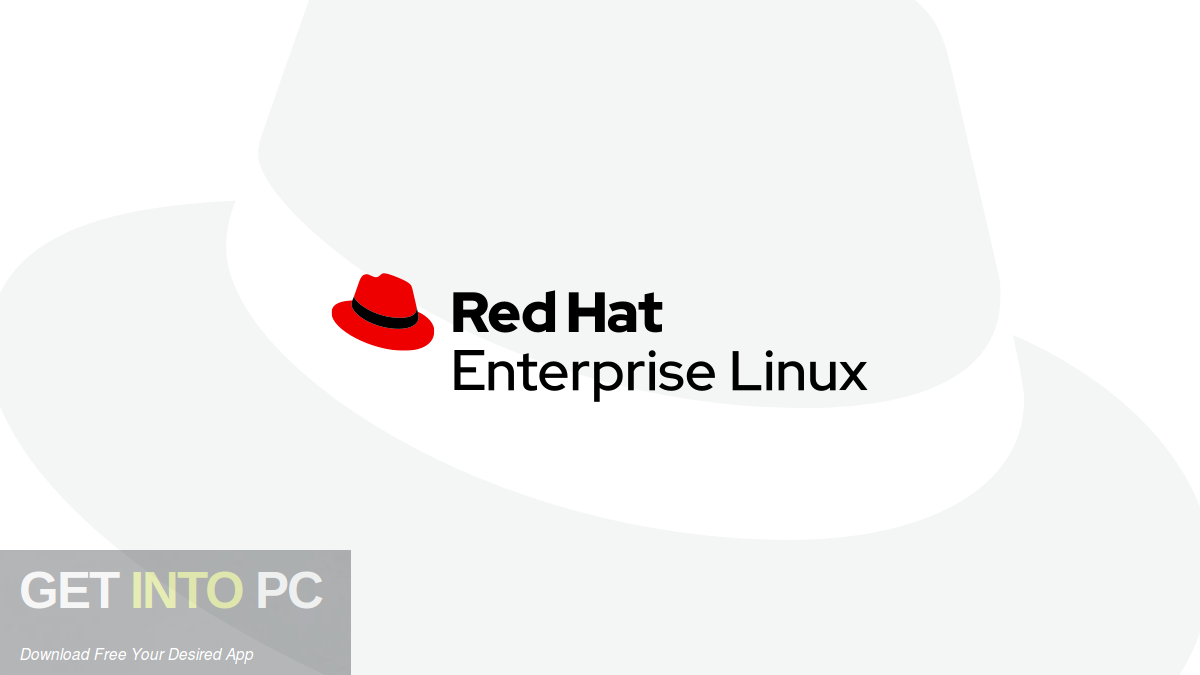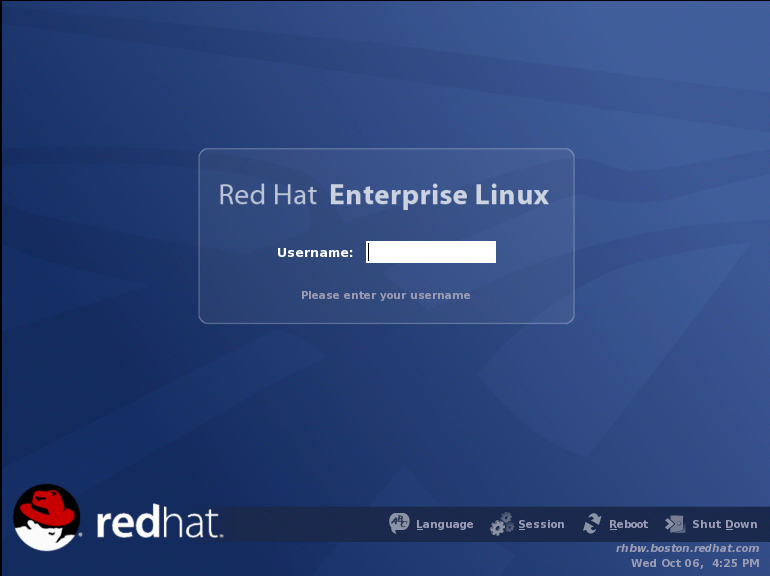If you are a Linux system administrator or Linux enthusiast, you will be happy to know that Red Hat Enterprise Linux 8 is now generally available for download. RHEL 8 has many advanced features as we discussed earlier in our article. Also, its new features accelerate application development including installation, coding, tool selection, and setup.
Red Hat on 7th May 2019, announced through its blog the general release of 'Red Hat Enterprise Linux 8'. Red Hat is saying it as the most developer-friendly Enterprise Linux provided by them and for same they have three pre-enabled repositories.
Red Hat Enterprise Linux is a modern and all new Linus OS which is developed under the banner of Red Hat. Red Hat Enterprise Linux 7.4 is somewhat old but still it contains all those features which are not present in many of the new OS out there. This software was provided for free and it was distributed under the name of Red Hat Linux. Linux Ununtu 13.04 Features. Leader in managing Linux redHat Enterprise Linux 6.4 Free Download; Easy to use. RedHat Enterprise Linux 6.4 Free Download; Simple and clean interface. RedHat Enterprise Linux 6.4 Free Download.
BaseOS —'mostly' has operating system content
Application Streams (AppStream) — most developer tools will be here
CodeReady Builder — additional libraries and developer tools
BaseOS will basically contain the core components of the Operating System. Application Streams (AppStream) will have the next generation of Software Collections, which are meant to provide extra functionality beyond what is available in BaseOS. CodeReady Builder has all the extra resources which are needed by the developer to ease their work whether it is libraries or extra tool.
How to Download Red Hat Enterprise Linux 8?
To download Red Hat Enterprise Linux 8, you will need a Red Hat account which can be freely created. You can also download RHEL 8 from your developer account.
Just follow below link and download Red Hat Enterprise Linux 8.
I have already downloaded RHEL 8 and currently giving it a try as was not able to test the beta version due to some storage issue (Disk was not detecting). Below is the screenshot for new RHEL 8 login screen.
Yes, it is a real one, don't get confused by Red Hat new logo (Symbol) as they have changed it early this month. Do comment what you think about Red Hat's new logo.
Do let me know through your comments what do you think about new Red Hat Enterprise Linux 8 (RHEL 8) which is focused on providing the developer's smooth experience while deploying their applications. If you want to know more about RHEL 8 feature, do check our previous article.
For ‘How To' guides, tutorials, tips & tricks, do subscribe to our blog. We bring you awesome articles from time to time.
Incoming search terms:
- nu vot
- red hat 7 free download iso
- red hat linux 8 2 iso download free
- rhel 8 download iso
Red Hat Enterprise Linux is the world's leading enterprise Linux platform, now optimized for development.
With new developer-centric features like container tools, advanced language support, and application streams, Red Hat Enterprise Linux 8 (RHEL) is the most developer friendly Linux ever. Red Hat Developer members have full access to RHEL 8 software, documentation, and how-tos.
If you're familiar with Red Hat Enterprise Linux, then this is the place to get started.

Get started on RHEL 8
Red Hat Enterprise Linux 8 introduces new features that accelerate your application development including installation, coding, tool selection and setup. It includes dozens of runtime languages, compilers, databases, and web and cache servers.
Start with these commands below for your first time through.
For the impatient, use this yum syntax to install an Application Stream @modulename[:version]
Most recent version:
Or, install a specific version:
Use this if you want to see a list of what's available:
For container development, RHEL 8 adds new Linux container tools: Buildah (container building), Podman (running containers) and Skopeo (sharing/finding containers). You can easily build images based on the many Application Streams.
For a quick reference to new RHEL 8 commands, download the Red Hat Enterprise Linux 8 Cheat Sheet for tips.
The most developer-friendly Linux ever.
Easy configuration for Windows users and Linux beginners.
RHEL 8 provides enhanced usability, as well as familiar, intuitive deployment and management features
Faster times to 'Hello World' and real productivity.
Application Streams make a wide selection of open source tools, including languages, runtimes, databases, and web servers, ready to be installed with a single command. Through Application Streams, you can pick the version of tools you need for your project and easily switch if necessary.
Container development tools.
Expanded set of container development tools. RHEL 8 provides an easier transition to containerized workloads with new container tools such as Buildah, Podman, Skopeo, and CRI-O.
Convenience across RHEL versions and OpenShift.
Most open source programming languages, compilers, web tools, databases run on RHEL 7 and RHEL 8 and OpenShift.
How to know if your code is secure.
Red Hat Enterprise Linux a trusted platform for your business, and RHEL 8 continues to build on this tradition. Features like System Wide Encryption Policy, Nftables/firewalld, and Red Hat Insights mean less effort and time spent managing and configuring services, without compromising security needs.
Develop for containers with podman
Red Hat's lightweight, open standards-based container toolkit is now fully supported and included with Red Hat Enterprise Linux 8. Built with enterprise IT security needs in mind, Buildah (container building), Podman (running containers), and Skopeo (sharing/finding containers) help developers find, run, build, and share containerized applications more quickly and efficiently, thanks to the distributed and daemonless nature of the tools.
RHEL 8 development tools
Red Hat Enterprise Linux 8 includes Application Streams of multiple versions of languages, compilers, databases, and other tools available - all are part of the subscription. The following components are currently available within RHEL 8:
Languages & compilers
- .NET Core 2.1
- Clang/LLVM Toolset 6.0
- GCC 8.2 (system compiler)
- Go Toolset 1.11
- Java 8 and 11
- Node.js 10
- Perl 5.26 and 5.24
- PHP 7.2
- Python 3.6 and 2.7
- Ruby 2.5
- Rust Toolset 1.31
- Scala 2.10
Databases, web tools, etc.
- MariaDB 10.3
- MySQL 8.0
- PostgreSQL 10.5 and 9.6
- Redis 5.0
- Apache httpd 2.4
- Nginx 1.14
For a complete list of packages available in the Appstream repo, type
Introducing CodeReady Builder
The RHEL 8 introduces a new repository, the CodeReady Linux Builder (or 'Builder' for short) that developers may need while developing applications for RHEL. As you all know 'developer' is not a one size fits all term.
Installation
Documentation
Redhat Iso Download Free Windows 7

Get started on RHEL 8
Red Hat Enterprise Linux 8 introduces new features that accelerate your application development including installation, coding, tool selection and setup. It includes dozens of runtime languages, compilers, databases, and web and cache servers.
Start with these commands below for your first time through.
For the impatient, use this yum syntax to install an Application Stream @modulename[:version]
Most recent version:
Or, install a specific version:
Use this if you want to see a list of what's available:
For container development, RHEL 8 adds new Linux container tools: Buildah (container building), Podman (running containers) and Skopeo (sharing/finding containers). You can easily build images based on the many Application Streams.
For a quick reference to new RHEL 8 commands, download the Red Hat Enterprise Linux 8 Cheat Sheet for tips.
The most developer-friendly Linux ever.
Easy configuration for Windows users and Linux beginners.
RHEL 8 provides enhanced usability, as well as familiar, intuitive deployment and management features
Faster times to 'Hello World' and real productivity.
Application Streams make a wide selection of open source tools, including languages, runtimes, databases, and web servers, ready to be installed with a single command. Through Application Streams, you can pick the version of tools you need for your project and easily switch if necessary.
Container development tools.
Expanded set of container development tools. RHEL 8 provides an easier transition to containerized workloads with new container tools such as Buildah, Podman, Skopeo, and CRI-O.
Convenience across RHEL versions and OpenShift.
Most open source programming languages, compilers, web tools, databases run on RHEL 7 and RHEL 8 and OpenShift.
How to know if your code is secure.
Red Hat Enterprise Linux a trusted platform for your business, and RHEL 8 continues to build on this tradition. Features like System Wide Encryption Policy, Nftables/firewalld, and Red Hat Insights mean less effort and time spent managing and configuring services, without compromising security needs.
Develop for containers with podman
Red Hat's lightweight, open standards-based container toolkit is now fully supported and included with Red Hat Enterprise Linux 8. Built with enterprise IT security needs in mind, Buildah (container building), Podman (running containers), and Skopeo (sharing/finding containers) help developers find, run, build, and share containerized applications more quickly and efficiently, thanks to the distributed and daemonless nature of the tools.
RHEL 8 development tools
Red Hat Enterprise Linux 8 includes Application Streams of multiple versions of languages, compilers, databases, and other tools available - all are part of the subscription. The following components are currently available within RHEL 8:
Languages & compilers
- .NET Core 2.1
- Clang/LLVM Toolset 6.0
- GCC 8.2 (system compiler)
- Go Toolset 1.11
- Java 8 and 11
- Node.js 10
- Perl 5.26 and 5.24
- PHP 7.2
- Python 3.6 and 2.7
- Ruby 2.5
- Rust Toolset 1.31
- Scala 2.10
Databases, web tools, etc.
- MariaDB 10.3
- MySQL 8.0
- PostgreSQL 10.5 and 9.6
- Redis 5.0
- Apache httpd 2.4
- Nginx 1.14
For a complete list of packages available in the Appstream repo, type
Introducing CodeReady Builder
The RHEL 8 introduces a new repository, the CodeReady Linux Builder (or 'Builder' for short) that developers may need while developing applications for RHEL. As you all know 'developer' is not a one size fits all term.
